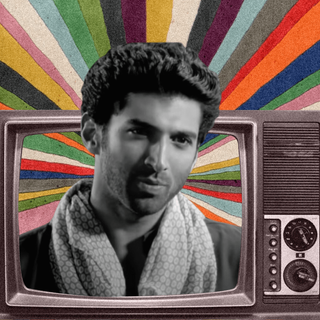
Woe Is Me! “I Used To Be Ambitious, but Now I’m Tired of Hustling. Can I Stop?”
A series in which The Swaddle team indulges your pity party with advice you’ll probably ignore.

Woe Is Me! is a series in which The Swaddle team indulges your pity party with advice you’ll probably ignore.
“I used to be a very ambitious woman, but then over time, the zeal in me has reduced. I am not content with life. I have no motivation to hustle but I am also not happy with where I am at present.“
— Can’t be hustled
DR: I feel like no one ever prepares us for how stressful working can be in this age of “hustle culture” — irrespective of how much you love the career you’ve chosen. If you feel like you’re tired and can’t hustle anymore, well, here’s some news: you’re human. Hustle culture isn’t sustainable — more so, in the aftermath of the pandemic that made us feel collectively disillusioned.
Neither do I know you, nor do I know anything about your professional life or your mental health, but as someone who has dealt with a bad spell of burnout and continues to have her life impacted by it in the long run, your woe resonated with me. So, maybe, you can consider seeing a therapist to understand whether you’re indeed experiencing burnout, or struggling with depression. Perhaps, it could also help you understand the dissonance you’re experiencing between wanting to get ahead in your career, but not finding the motivation to do so.
PB: Ah, hustle culture — distilled capitalism for the modern middle class. I’m sure Jay-Z would hate me for this, but life is most definitely not all about the next hustle, the next rush of professional success. I’m sure every Slytherin would hate me for this, but ambition is not a prerogative for a good life. You’ve reached a point most workaholics reach at some crossroads in their life — the crushing realization that life was made for the quieter moments; not for us to constantly work our rears off.
Your tiredness may stem from feeling unfulfilled, or being overworked, or a general dislike of your working headspace. Perhaps, the larger picture seems blurry to you. There is no shame in being tired — in fact, admitting so is important. Whatever field of work you’re part of, once in a while, you’ll need to take a step back, go for a walk, take a trip, fall into your bed for days. Zeal is a resource that you’ll need to recharge: sometimes for a long, long time.
Let yourself chill, please. The hustle shall wait.
RN: Hustle culture is overrated and you seem to have arrived at its logical conclusion. It is a myth that hustling will get you to where you want to be — nobody talks about how hustling is also directly proportional to the risk of burnout. Ambition can also involve slowness, wisdom, and introspection. You can’t make your moves unless you know where you want to go, how you want to get there, and what you want out of it. Hustling and working at a supersonic pace can make you lose sight of the bigger picture and get you caught up in the process rather than the goal. This feeling is a sign that it’s time to take a step back and take it slow — think about what it is you really want, why you feel stuck and unhappy with where you are, and what you can do about it that doesn’t involve another hustle-spiral. It’s a capitalist myth designed to extract as much productivity out of you while making you lose sight of your own desires.
AS: I think hustling is overrated. Ambition is subjective and we can all set our own definitions of success. At the same time, I think the irony is that contentment is elusive for us all. If you feel you’re not happy at the moment, perhaps, try to narrow down what’s making you unhappy? Is it your job? Is it your house? Something else in your personal life? Once you know what it is, perhaps, you’d be able to address it better. In this case, I think it’d be helpful and important to separate what you want, from what social standards dictate. So, for instance, if you’re unhappy with where you live, the solution may not be to scale up your accommodation, but to scale down. If you want to be happier at work, the trick may not be to give it more time, but to reduce how much time you spend on it. Perhaps, figuring this out can help rebuild your enthusiasm.
Related


The Buzz Cut: A Roundup of People Who Have Something to Say About Kindness While Ruining The World
